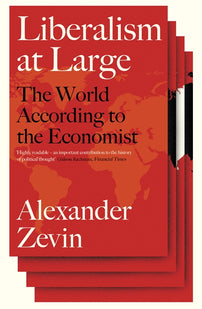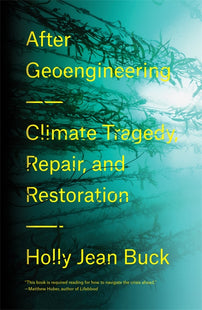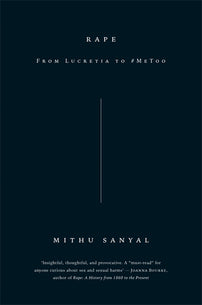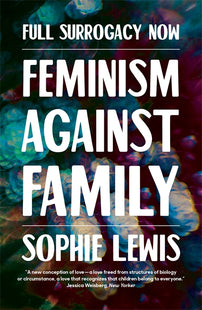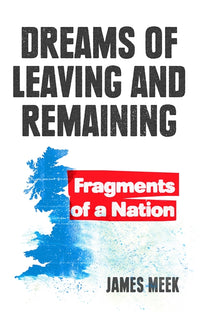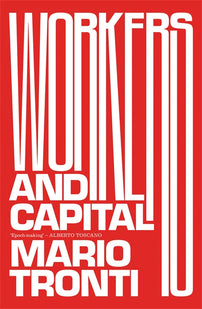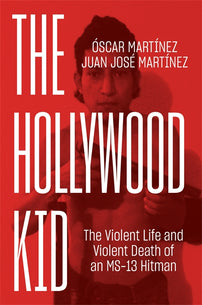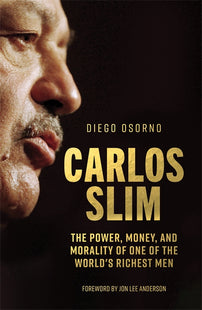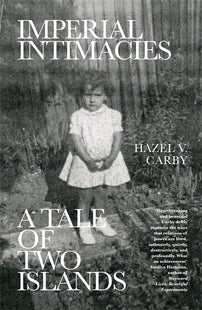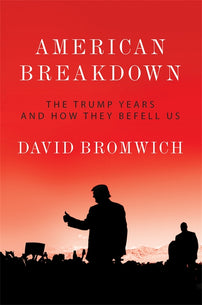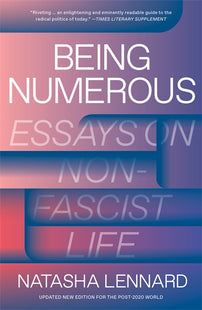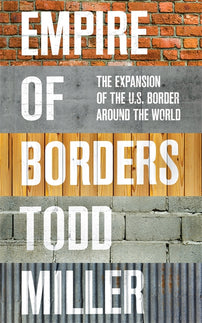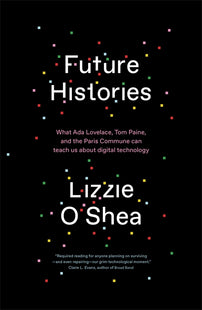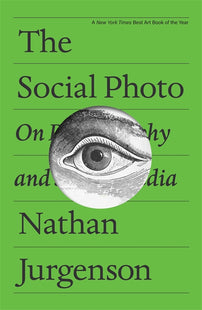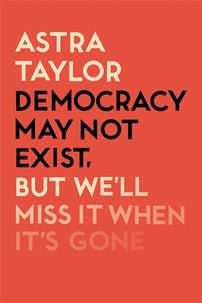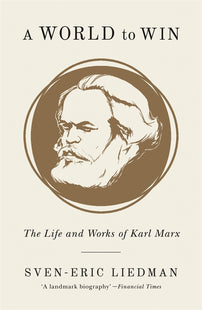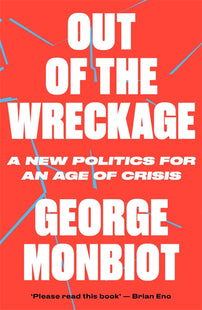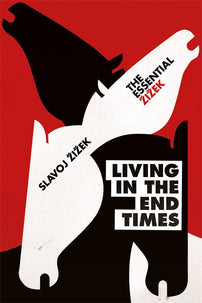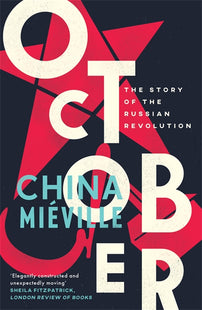Jump into January reading!
Looking for a new book to get stuck into? 70% off essential January reading!

Including the first critical biography of The Economist, one of the architects of a liberal world order now under increasing strain, a powerful argument for why we need a radical overhaul of the surrogacy industry by Sophie Lewis and the first English Translation of Mario Tronti's groundbreaking Workers and Capital.
See all of our essential January reads, 70% off until Sunday 26th January, 23:59 EST
[book-strip index="1" style="buy"]THE 2020 VERSO RADICAL DIARY is a beautifully designed week-to-view planner for keeping track of the year ahead. Alongside illustrations and book excerpts, it features significant radical dates from throughout history—including the English Civil War and Black Panther movement, through to the protests of 1968 and feminist emancipation, touching on the lives of revolutionaries such as Angela Davis, Rosa Luxemburg and Martin Luther King Jr.
Measures 190mm x 125mm.
OUT OF STOCK IN NORTH AMERICA
[book-strip index="2" style="buy"]Since 1843, the Economist has been the single most devoted and influential champion of liberalism anywhere in the world. But what exactly is liberalism, and how has the liberal message evolved? Liberalism at Large presents a history of liberalism on the move, confronting the challenges that classical doctrine left unresolved: the rise of democracy, the expansion of empire, the ascendancy of finance.
[book-strip index="3" style="buy"]The window for action on climate change is closing rapidly. We are hurtling ever faster towards climate catastrophe—the destruction of a habitable world for many species, perhaps the near-extinction of our own. As anxieties about global temperatures soar, demands for urgent action grow louder. What can be done? Can this process be reversed? Once temperatures rise, is there any going back? Some are thinking about releasing aerosols into the stratosphere in order to reflect sunlight back into space and cool the earth. And this may be necessary, if it actually works. But it would only be the beginning; it’s what comes after that counts.
[book-strip index="4" style="buy"]A bold, honest and unflinching look at the way we talk and think about rape.
Thanks to Title IX cases, #MeToo, and #Times Up, the issue of rape seems to be constantly in the news. But our thinking on the subject has a long history, one that cultural critic Mithu Sanyal elegantly reconstructs. She narrates a history spanning from Lucretia—whose legendary rape and suicide was said to be the downfall of the last Roman king—to second-wave feminism, Tarzan, and Roman Polanski.
[book-strip index="5" style="buy"]The surrogacy industry is estimated to be worth over $1 billion a year, and many of its surrogates around the world work in terrible conditions—deception, wage-stealing and money skimming are rife; adequate medical care is horrifyingly absent; and informed consent is depressingly rare. In Full Surrogacy Now, Sophie Lewis brings a fresh and unique perspective to the topic. Often, we think of surrogacy as the problem, but, Full Surrogacy Now argues, we need more surrogacy, not less!
[book-strip index="6" style="buy"]The conflict in Northern Ireland was one of the most devastating in post-war Europe, claiming the lives of 3,500 people and injuring many more. This book is a riveting new history of the radical politics that drove a unique insurgency that emerged from the crucible of 1968. Based on extensive archival research, One Man’s Terrorist explores the relationship between the IRA, a clandestine army described as ‘one of the most ruthless and capable insurgent forces in modern history’, and the political movement that developed alongside it to challenge British rule.
[book-strip index="7" style="buy"]The remarkable advance of “Corbynism” did not emerge from nowhere. It is the product of developments in socialist and working-class politics over the past forty years and more. The Thatcher era witnessed a wholesale attack on the postwar consensus and welfare state, through a regime of deregulation, attacks on the unions, privatisations, and globalisation. However, at the same time, there existed a persistent resistance to the growing powers of neo-liberalism. This side of the story is rarely told as it was considered to be a history of defeat. Yet out of this struggle emerged a thoroughly modern socialism.
[book-strip index="8" style="buy"]Since Britain’s 2016 referendum on EU membership, the nation has been profoundly split: one side fantasizing that the referendum will never be acted upon, the other entrenched in questionable assumptions about reclaimed sovereignty and independence. Underlying the cleavage are primal myths, deeper histories, and political folk-legends. James Meek, “the George Orwell of our times,” goes in search of the stories and consequences arising out of a nation’s alienation from itself.
[book-strip index="9" style="buy"]Workers and Capital is universally recognised as the most important work produced by operaismo, a current of political thought emerging in the 1960s that revolutionised the institutional and extra-parliamentary Left in Italy and beyond. In the decade after its first publication in 1966, the debates over Workers and Capital produced new methods of analysis and a new vocabulary for thousands of militants, helping to inform the new forms of workplace, youth, and community struggle.
[book-strip index="10" style="buy"]Our economy is rigged in favour of a wealthy elite. We need a new approach: an economics for the many.
[book-strip index="11" style="buy"]Socialism was pronounced dead when the Soviet Union collapsed. But with the success of Jeremy Corbyn’s left-led Labour Party and increasing economic inequality, the politics of class struggle and wealth redistribution is back on the agenda. In The Socialist Manifesto, Bhaskar Sunkara offers a primer on socialism for the twenty-first century, outlining where it came from, what it is, and what a socialist political system might look like.
[book-strip index="12" style="buy"]The Salvadoran journalist Óscar Martinez and his anthropologist brother Juan José Martínez got to know the Hollywood Kid when he informed on MS-13. In his hideaway shack, he recounted a life of killing—a death toll of more than fifty rival gang members—until his own murder ended the story. Vivid and violent, The Hollywood Kid brings a brutal world to life, illustrating the geopolitical forces propelling a country toward ever more vicious extremes.
[book-strip index="13" style="buy"]Can one of the richest men in the world be a good person?
The rich are not like us. Great wealth brings both power and immunity, a pairing that opens a yawning moral abyss at the feet of the world’s billionaires.
[book-strip index="14" style="buy"]“Where are you from?” was the question hounding Hazel Carby as a girl in post-war London. One of the so-called brown babies of the Windrush generation, born to a Jamaican father and Welsh mother, Carby’s place in her home, her neighbourhood, and her country of birth was always in doubt.
[book-strip index="15" style="buy"]How Trump got to the Oval Office—and how both parties and the mainstream media are keeping him there.
[book-strip index="16" style="buy"]An urgent challenge to the prevailing moral order from one of the freshest, most compelling voices in radical politics today.
[book-strip index="17" style="buy"]The story of Palestine’s stonemasons and the building of Israel.
Winner of the 2019 Palestine Book Awards
[book-strip index="18" style="buy"]The twenty-first century has witnessed the rapid hardening of international borders. Security, surveillance, and militarization are widening the chasm between those who travel where they please and those whose movements are restricted. But that is only part of the story.
[book-strip index="19" style="buy"]When we talk about technology we always talk about the future—which makes it hard to figure out how to get there. In Future Histories, Lizzie O’Shea argues that we need to stop looking forward and start looking backwards. Weaving together histories of computing and social movements with modern theories of the mind, society, and self, O’Shea constructs a “usable past” that help us determine our digital future.
[book-strip index="20" style="buy"]With the rise of the smart phone and social media, cameras have become ubiquitous, infiltrating nearly every aspect of social life. The glowing camera screen is the lens by which many of us apprehend and communicate our experience. But our thinking about photography has been slow to catch up; this major fixture of everyday life is still often treated in the terms of art or journalism.
[book-strip index="21" style="buy"]In 1946 many Jewish soldiers returned to their homes in England imagining that they had fought and defeated the forces of fascism in Europe. Yet in London they found a revived fascist movement inspired by Sir Oswald Mosley and stirring up agitation against Jews and communists. Many felt that the government, the police and even the Jewish Board of Deputies were ignoring the threat; so they had to take matters into their own hands, by any means necessary.
[book-strip index="22" style="buy"]Democracy is in crisis. In every major company it has been stole by elites or in the hands of strong men. In democracy’s name we see a raft of policies that spread inequality and xenophobia worldwide. It is clear that democracy—the principle of government by and for the people - is not living up to its promise.
[book-strip index="23" style="buy"]In this personal portrait of Edward Said written by a close friend, Dominique Eddé offers a fascinating and fresh presentation of his oeuvre from his earliest writings on Joseph Conrad to his most famous texts, Orientalism and Culture and Imperialism.
[book-strip index="24" style="buy"]Karl Marx has fascinated and inspired generations of radicals for the past two hundred years. In this new, definitive biography, Sven-Eric Liebman makes his work live once more for a new generation. Despite centuries having passed since his birth, Marx’s burning condemnation of capitalism remains of immediate interest.
[book-strip index="25" style="buy"]From line managers, corporate CEOs, urban designers, teachers, politicians, mayors, advertisers and even our friends and family, the message is “be creative’. Creativity is heralded as the driving force of our contemporary society, celebrated as agile, progressive and liberating. It is the spring of the knowledge economy and shapes the cities we inhabit. It even defines our politics. What could possibly be wrong with this?
[book-strip index="26" style="buy"]A toxic ideology of extreme competition and individualism has come to dominate our world. It misrepresents human nature, destroying hope and common purpose. Only a positive vision can replace it, a new story that re-engages people in politics and lights a path to a better future.
[book-strip index="27" style="buy"]In a major new analysis of our global situation, Žižek argues that our collective responses to economic Armageddon correspond to the stages of grief: ideological denial, explosions of anger and attempts at bargaining, followed by depression and withdrawal. For this edition, Žižek has written a long afterword that leaves almost no subject untouched, from WikiLeaks to the nature of the Chinese Communist Party.
[book-strip index="28" style="buy"]Named One of the Best Books of the Year by Publishers Weekly
On the centenary of the Russian Revolution, China Miéville tells the extraordinary story of this pivotal moment in history.
A brilliant collection of essays from one of the most highly acclaimed writers in the US.

